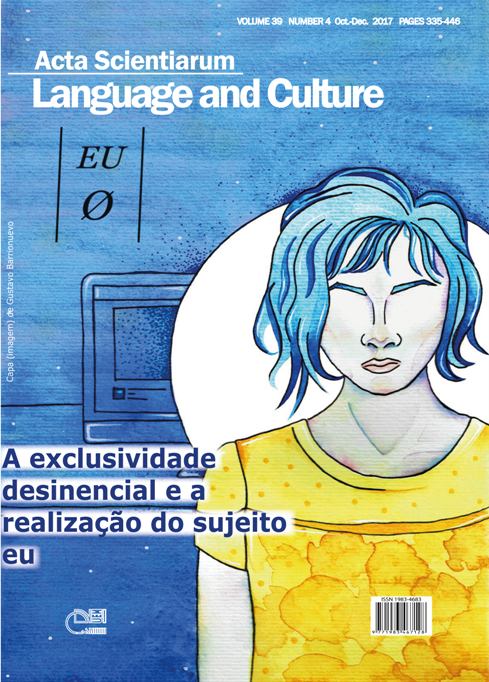<b>The production of a ‘politicized body’ for Dilma Rousseff during the 2010 Brazilian presidential elections: a discourse analysis of the Brazilian weekly magazines
Abstract
Transformations that do not enhance the use of the empirical political body but corporeity are discussed from the point of view of the French Discourse Analysis. In other words, their discursiveness produced by the Brazilian printed media is investigated. The manner Dilma Rousseff’s political profile was materialized within discourses of weeklies during the 2010 Brazilian presidential elections is analyzed. A file comprising 208 issues of the weeklies Carta Capital, Época, Isto É and Veja published during the election year was prepared to foreground the theoretical-analytical process of the scenario under analysis. Within the theoretical background mainly based on Michel Foucault’s archeogenealogical method, our results reveal that discursive practices of the weekly magazines focused on the metamorphoses that the body of the Labor Party candidate has undergone to figure as the representation of her antecessor. Consequently, a politicized body (Santos, 2014) was produced, potentialized by the ‘wordability’ of immaterial and non-human technological mechanisms, although thought-provoking within the media-transformed ‘candidate-body’ (Santos & Romualdo, 2013), denounced by the press as an electoral product.
Downloads
DECLARATION OF ORIGINALITY AND COPYRIGHTS
I Declare that current article is original and has not been submitted for publication, in part or in whole, to any other national or international journal.
The copyrights belong exclusively to the authors. Published content is licensed under Creative Commons Attribution 4.0 (CC BY 4.0) guidelines, which allows sharing (copy and distribution of the material in any medium or format) and adaptation (remix, transform, and build upon the material) for any purpose, even commercially, under the terms of attribution.
Read this link for further information on how to use CC BY 4.0 properly.




















6.png)









